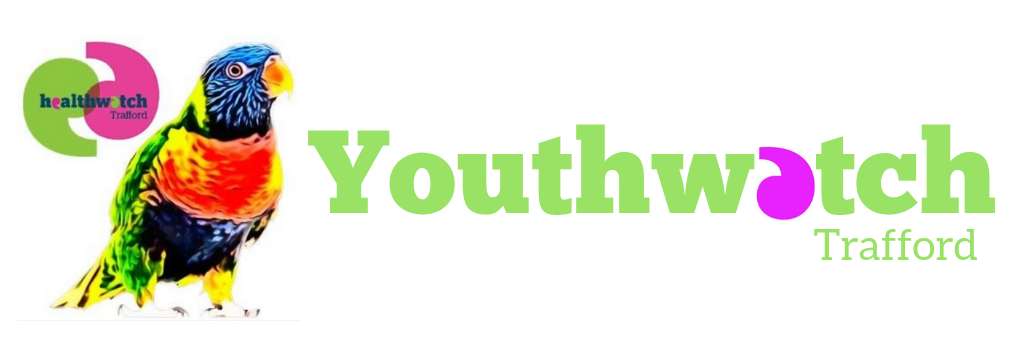Healthy Living: Self-harm, Drugs and Alcohol
Healthy Living: Self-harm, Drugs and Alcohol
We all face obstacles that stop us from achieving a healthy and fulfilled lifestyle, whether it’s built-up stress within the workplace or even shaky relationships with friends or family. Whatever the obstacles may be, it’s really important for us to recognise and overcome them so they don’t start to affect us negatively.
Self-harm, drug and alcohol use are quite common in our society – especially amongst young teens – many of which use these as ways of coping with stress, anger or pain.
Firstly, let’s find out what is meant by the terms self-harm, drug and excessive alcohol use.
Self-harm

Self-harm is when someone hurts themselves on purpose by causing damage or injury to their body. Self-harm is unfortunately quite common. Some people use self-harm as a coping strategy or way of dealing with difficult feelings or experiences. People also use it as a way of punishing themselves or to show distress. People who self-harm usually find it difficult to open up and speak about how they feel. Self-harm can be triggered by a significant event or change in a person’s life, for example, experiencing a breakup or being the victim of abuse. Self-harm can sometimes help people to feel something physically which they are can’t really feel emotionally. People who harm themselves may also suffer from low self-esteem and low confidence, sadness, anger, numbness or a lack of control over their lives. In addition to this, self-harm may also be a symptom or way of coping with a psychological problem such as depression or anxiety.
If you know somebody or you yourself are self-harming, you are not alone! There are many, many people and services that will help you through it, whatever the reason – the hardest part is to reach out!
See your GP for help if you’re self-harming. They can refer you to mental health professionals for assessment, to help you with your distress. Treatment usually involves seeing a therapist to discuss your thoughts and feelings, and how these affect your behaviour and wellbeing. They can also teach you coping strategies to help prevent further episodes of self-harm. See www.nhs.uk/conditions/self-harm/ for more information.
Drugs
Drug use is a very dangerous problem that can result in lots of negative impacts to health. Drugs can alter the way we think and can cause us to develop addictions which introduces even more problems down the line. The main issue with drug use is that it often begins voluntarily in order to feel good, to ease stress or to escape reality, however there is always a great chance that a long-term effect can arise from its use. Similarly, to alcohol use, drugs are a common crutch that young people use in order to cope with difficult things in their lives that they feel they can’t control. Unfortunately, drugs can be very addictive and regularly cause users to spiral even though they are taken to feel good initially.

Drug addiction begins through drug abuse and is considered a chronic disease that is defined by drug seeking and use that is compulsive and extremely hard to stop. Often the risks are taken regardless of any negative consequences that may come from its use. Relapses are also common for people attempting to recover which makes it even harder for people to remove the addiction. Drug abuse over time also changes the way our brains function and this can affect us in the long-term as certain processes get worse, such as:
- Learning
- Judgement
- Decision making
- Stress
- Memory
- Behaviour
More information can be found at https://www.nhs.uk/live-well/healthy-body/drug-addiction-getting-help/
Alcohol
Alcohol is also a very common substance for abuse as many people consume it excessively in order for them to feel good. This feeling however is temporary and is mostly appealing for younger people who wish to escape unwanted situations or to help them cope with difficult
feelings and circumstances.

Heavy drinking over time can lead to a dependence known as ‘alcoholism’. This is when somebody feels strong and uncontrollable desires to drink. This is dangerous as consistent heavy drinking will lead to the build-up of a tolerance to alcohol, making people drink even greater amounts in order to feel ‘good’. Many people also find it hard to relax or enjoy themselves without a drink, making it difficult to stay sober. A big physical side effect of
alcohol dependence is withdrawal symptoms that are felt when the blood alcohol level falls – like sweating, nausea, hallucinations and insomnia.
Alcohol abuse can bring several negative effects within a person’s life such as failing to meet academic or career deadlines and goals, deterioration or difficulty within a relationship, financial strain, emotional stress and health problems. Another dangerous impact of alcohol abuse is the physical hazard it can create when someone under the influence is driving as they endanger themselves and others around them.
Some signs and symptoms of alcohol dependence are:
- Worrying/planning when your next drink is
- Feeling compelled to drink and finding it difficult to resist
- Waking up and drinking/drinking early in the morning
- Suffering from alcohol withdrawal symptoms
More information can be found at www.drinkaware.co.uk
Alcohol abuse and dependence can be prevented by taking regular breaks from alcohol and not drinking heavily in one go. Also drinking within the low risk unit guidelines will help reduce the risk of developing dependence.
Finding different ways of coping with stress that would otherwise lead you to drink, use drugs or self-harm are good, for example, going for a run, meeting up with a friend or even enjoying a relaxing time at home. It’s important that we find other uplifting things to do as its not healthy to rely on these things in order to keep our spirits up – there are a lot of other ways!
Where can you get help?
- 42nd Street – 42nd Street provides support services to young people aged 13-25 in our area with mental health and wellbeing, including support for those who self-harm. They provide a range of services including counselling, individual support, group work and volunteering opportunities. 42nd Street takes referrals from young people themselves, as well as parents, carers and professionals. For more information, call 0161 228 7321, email theteam@42ndstreet.org.uk or visit 42ndstreet.org.uk
Used this service? Tell Healthwatch Trafford about it here.
- Young Minds – the UK’s leading charity fighting for children and young people’s mental health. They help make sure they people can get the best possible mental health support and have the resilience to
overcome life’s difficulties. The YoungMinds Crisis Messenger gives free 24/7 support across the UK if you are experiencing a mental health crisis. For more information, visit youngminds.org.uk, for the parents helpline, call 0808 802 5544 or if you are a young person and need urgent help, text YM to 85258.
Used this service? Tell Healthwatch Trafford about it here.
- Addiction Dependency Solutions – Provides services in the community that are free for people in the area. Typical recovery plans may include: one to one counselling, CBT, group work and workshops, acupuncture and other relaxation techniques, sustainable housing plans, criminal justice interventions and mental health partnerships. Assistance is provided to clients in gaining the skills and knowledge to enter the workforce of today by enabling placements and offering volunteering opportunities within ADS and partner agencies. For more information, visit www.adsolutions.org.uk.
Used this service? Tell Healthwatch Trafford about it here.
- Trafford Talkshop – Talkshop is a specialist advice and information service for young people aged between 13 and 19 years old (up to 25 depending on circumstances). Based at Sale Waterside, their aim is to support needs through offering a variety of services in a friendly
environment. The Talkshop staff team consists of qualified youth workers who offer a non-judgemental, confidential service to young people across the borough. The Talkshop runs a drop in service Monday to Thursday afternoons (1-3pm Mon and Wed and 1-5pm Tue and Thu) where you can pop in to speak to a youth worker. Some of the issues our youth workers can offer support with include healthy relationships, family breakdowns, bullying, sexual health, sexuality, anger, self-harm, depression, homelessness, drugs and alcohol mis-use. For more information, call 0161 912 2453 or email talkshop@trafford.gov.uk.
Used this service? Tell Healthwatch Trafford about it here.
- Early Break – This is a specialist Young People and Family services which provides family therapy. For more information, call 0161 723 3880 or download a referral form from www.earlybreak.co.uk/what-we-do/holding-families/
Urgent Help
Talk to your parents/carers or contact Samaritans at 116 123 or Childline at 0800 1111.
In an emergency, contact emergency services immediately on 999.

